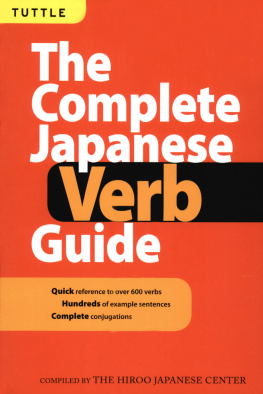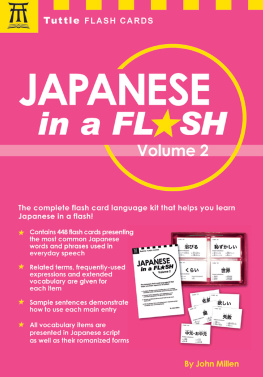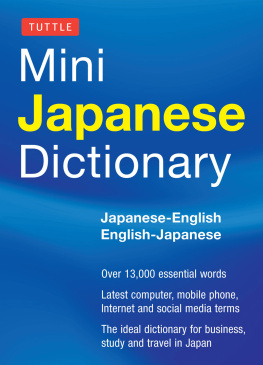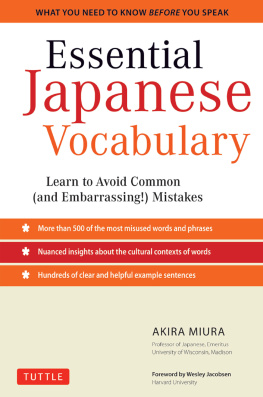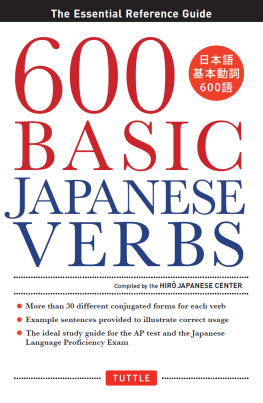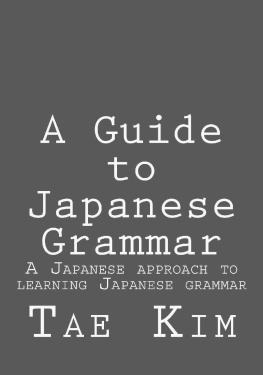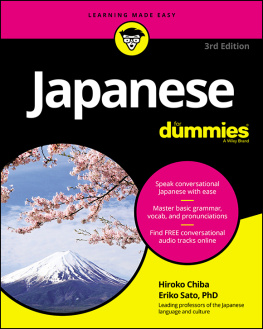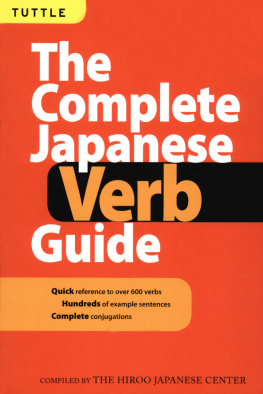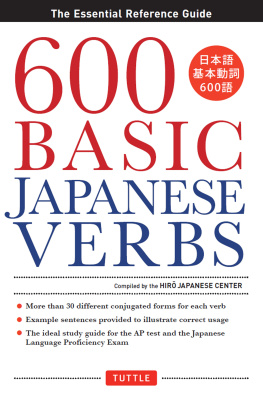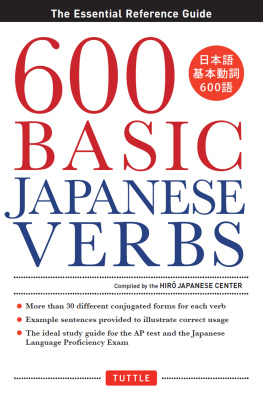Hiroo Japanese Center (Tokyo - The complete Japanese verb guide
Here you can read online Hiroo Japanese Center (Tokyo - The complete Japanese verb guide full text of the book (entire story) in english for free. Download pdf and epub, get meaning, cover and reviews about this ebook. City: Tokyo, year: 1989;2010, publisher: Tuttle Publishing, genre: Detective and thriller. Description of the work, (preface) as well as reviews are available. Best literature library LitArk.com created for fans of good reading and offers a wide selection of genres:
Romance novel
Science fiction
Adventure
Detective
Science
History
Home and family
Prose
Art
Politics
Computer
Non-fiction
Religion
Business
Children
Humor
Choose a favorite category and find really read worthwhile books. Enjoy immersion in the world of imagination, feel the emotions of the characters or learn something new for yourself, make an fascinating discovery.
- Book:The complete Japanese verb guide
- Author:
- Publisher:Tuttle Publishing
- Genre:
- Year:1989;2010
- City:Tokyo
- Rating:4 / 5
- Favourites:Add to favourites
- Your mark:
The complete Japanese verb guide: summary, description and annotation
We offer to read an annotation, description, summary or preface (depends on what the author of the book "The complete Japanese verb guide" wrote himself). If you haven't found the necessary information about the book — write in the comments, we will try to find it.
The Complete Japanese Verb Guide is a handy, easy-to-use guide to one of the building blocks of language learningverbs.
To effectively learn Japanese, a strong knowledge of Japanese grammar and vocabulary is needed. This book will come to the rescue as it shows learners how to conjugate the 600 most common Japanese verbs quickly, and with very little effort. This is the only guide to list all verb forms in both Japanese script and romanized form, while giving an accurate English translation for each conjugated form, making this book far more comprehensive than any other book on the subject.
Compiled by Japanese language experts at The Hiro Japanese Center, more than 30 different verbal forms are given for each verb including all forms used in contemporary spoken, written, formal and conversational Japanesemaking this the ideal reference when reading any sort of Japanese printed materials including manga, newspapers, magazines and books. The...
Hiroo Japanese Center (Tokyo: author's other books
Who wrote The complete Japanese verb guide? Find out the surname, the name of the author of the book and a list of all author's works by series.

